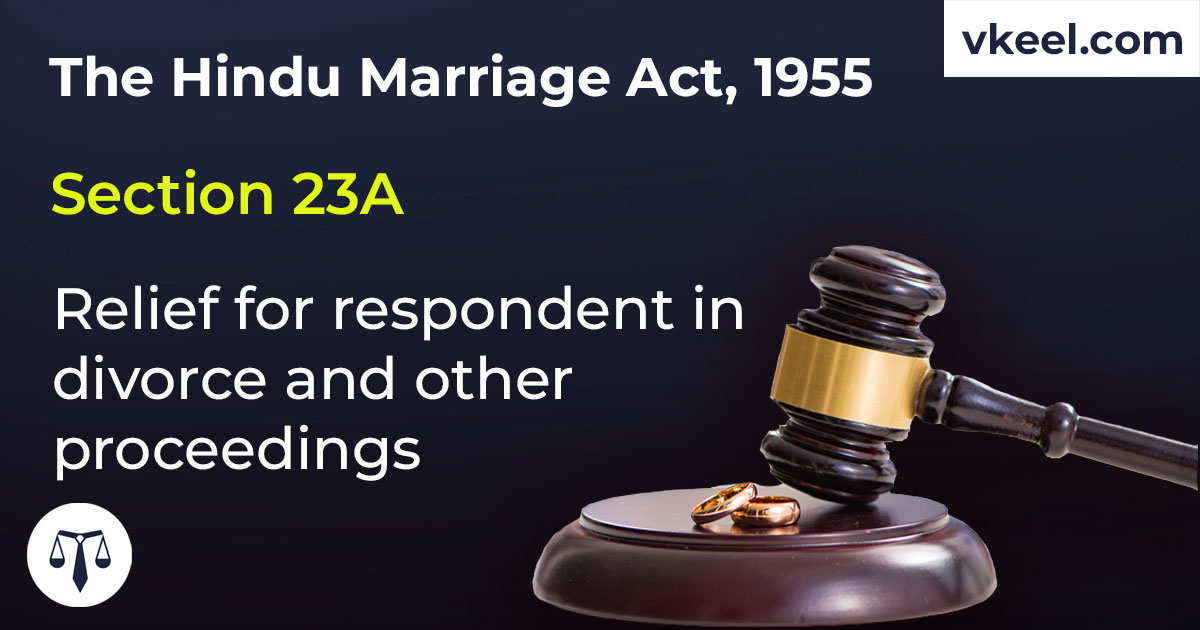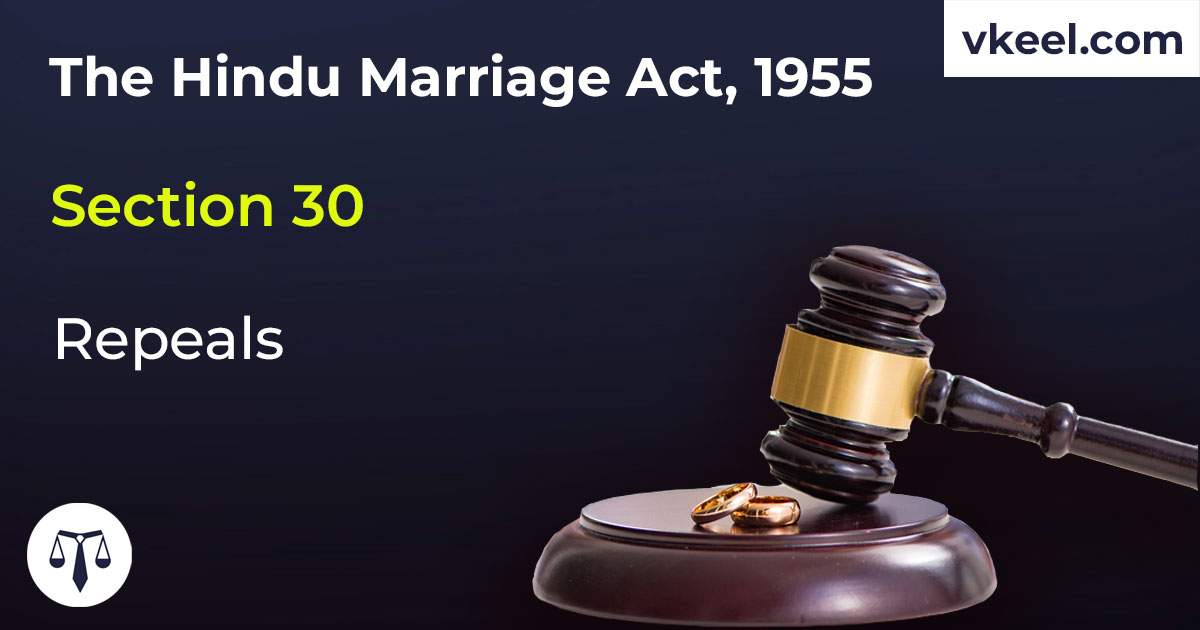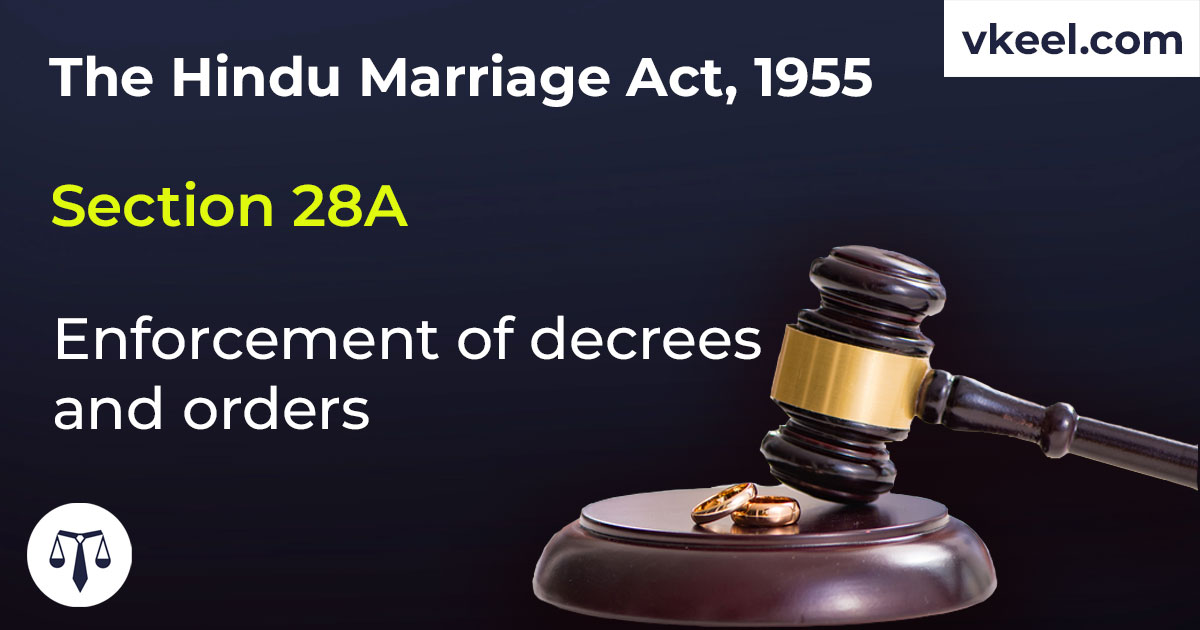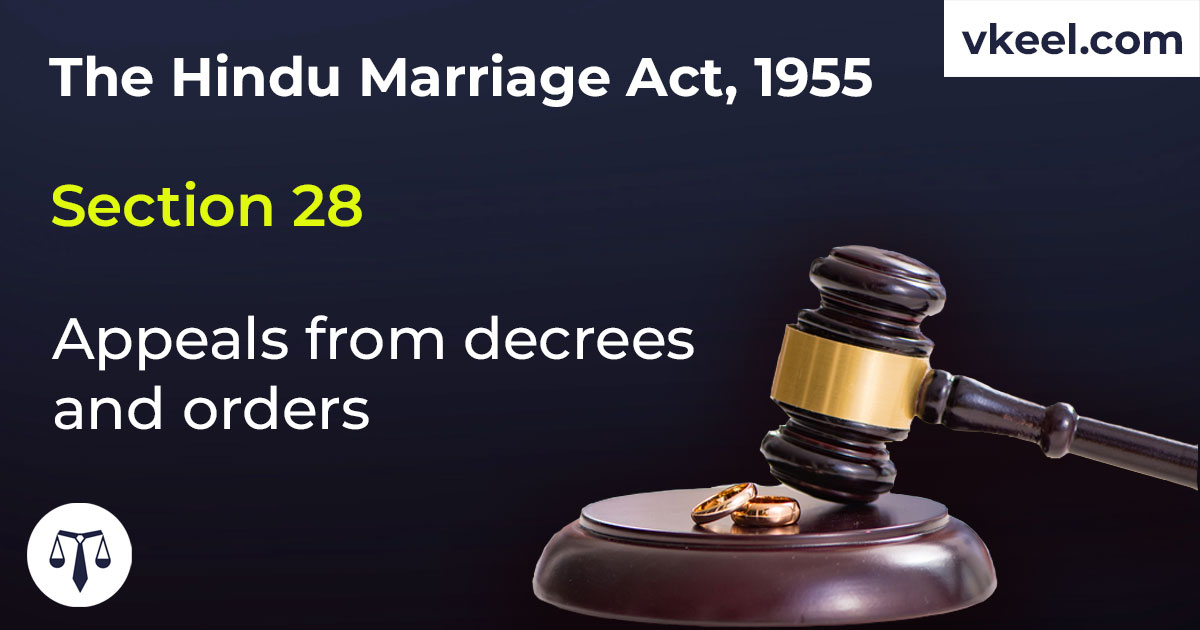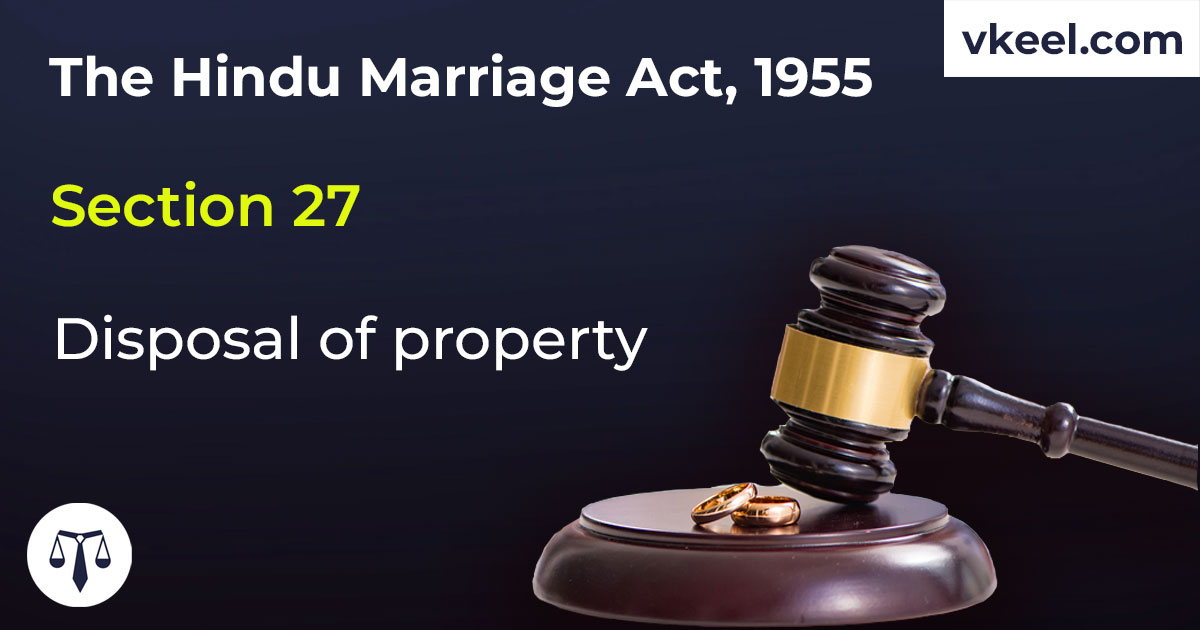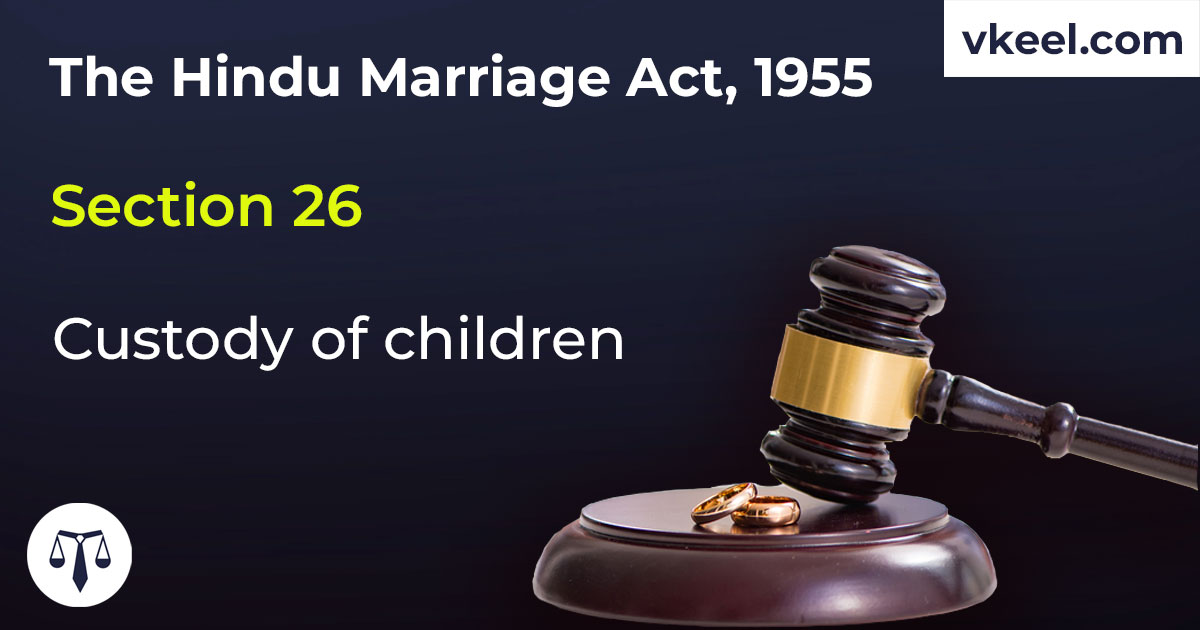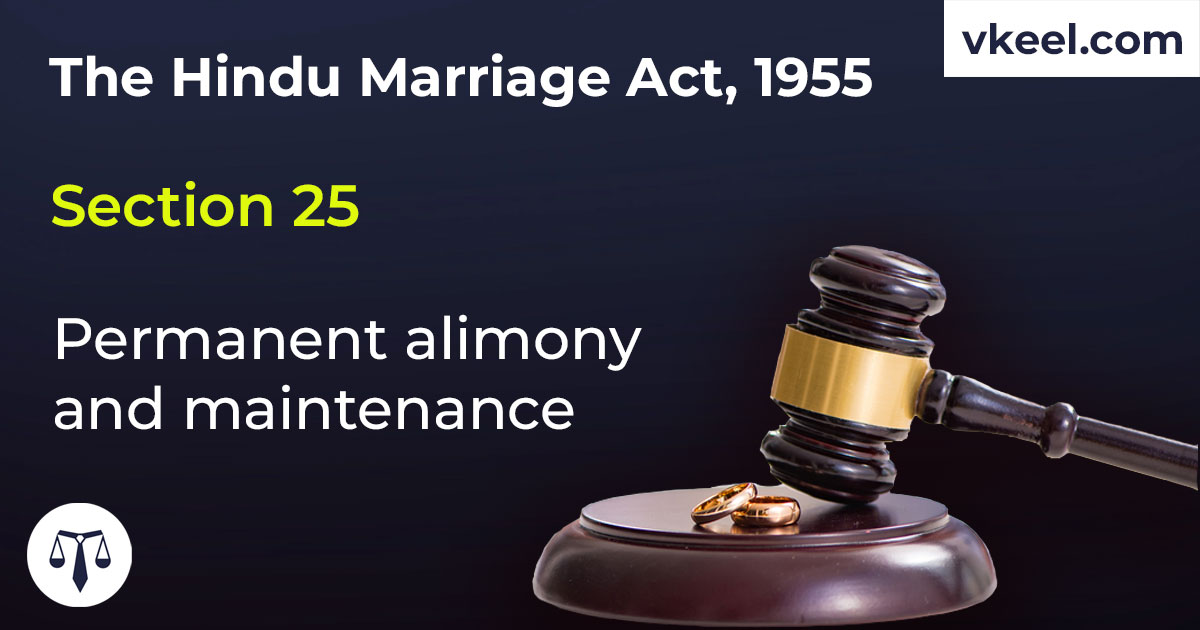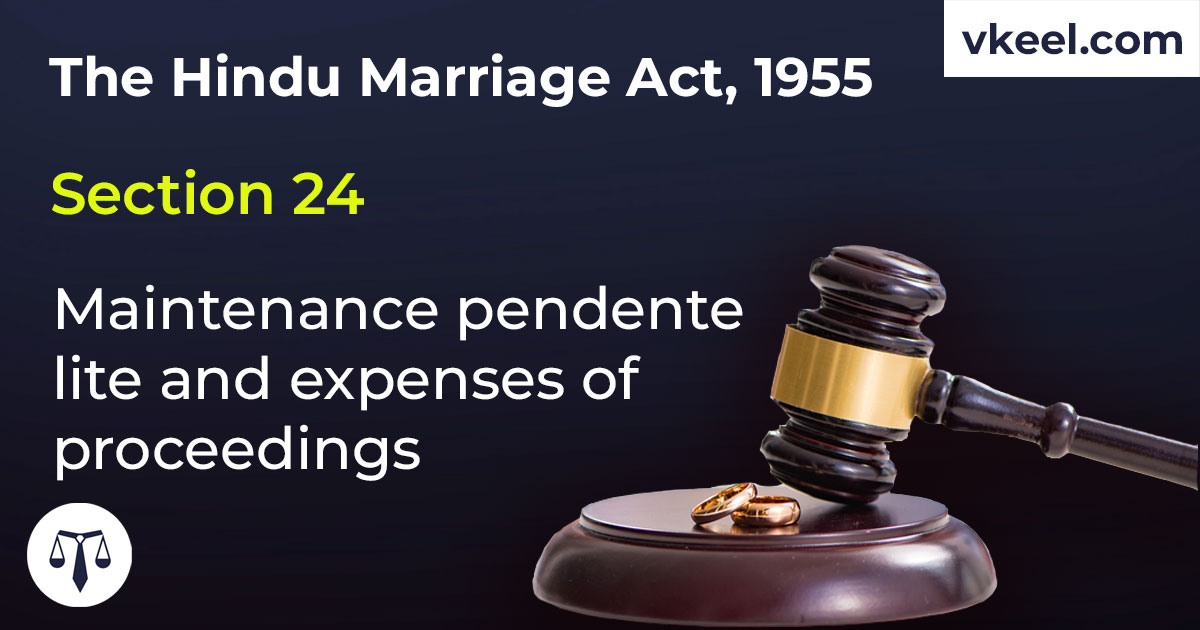Section 23A Hindu Marriage Act 1955 – Relief for respondent in divorce and other proceedings
By Vkeel Team
Table of Contents
Description
“Section 23A Hindu Marriage Act 1955”
1[In any proceeding for divorce or judicial separation or restitution of conjugal rights, the respondent may not only oppose the relief sought on the ground of petitioners adultery, cruelty or desertion, but also make a counter-claim for any relief under this Act on that ground; and if the petitioners adultery, cruelty or desertion is proved, the court may give to the respondent any relief under this Act to which he or she would have been entitled if he or she had presented a petition seeking such relief on that ground.]
Role of Section 23A Hindu Marriage Act 1955 in Protecting the Rights of Respondents in Divorce Cases
Section 23A Hindu Marriage Act 1955 is particularly important in protecting the rights of respondents in divorce cases. This section provides that a court shall not grant a decree of divorce unless it is satisfied that adequate provision has been made for the maintenance of the respondent.
The purpose of Section 23A is to ensure that the respondent is not left destitute after the divorce. This is especially important in cases where the respondent is financially dependent on the petitioner. The section also serves to protect the rights of the respondent in cases where the petitioner has a much higher income than the respondent.
Section 23A requires the court to consider the financial circumstances of both parties before granting a decree of divorce. The court must take into account the income, property, and other financial resources of both parties. The court must also consider the needs of the respondent, including their reasonable requirements for maintenance.
The court must also consider the financial resources of the petitioner and the respondent’s ability to maintain themselves. If the court finds that the petitioner has sufficient resources to provide for the respondent’s maintenance, then the court may grant a decree of divorce. However, if the court finds that the petitioner does not have sufficient resources to provide for the respondent’s maintenance, then the court may refuse to grant a decree of divorce.
In addition to protecting the rights of the respondent, Section 23A also serves to protect the rights of the petitioner. This is because the court must consider the financial circumstances of both parties before granting a decree of divorce. This ensures that the petitioner is not unfairly burdened with the responsibility of providing for the respondent’s maintenance.
In conclusion, Section 23A Hindu Marriage Act 1955 plays an important role in protecting the rights of respondents in divorce cases. The section ensures that the respondent is not left destitute after the divorce and that the petitioner is not unfairly burdened with the responsibility of providing for the respondent’s maintenance.
Reliefs Available to Respondents Under Section 23A Hindu Marriage Act 1955
Section 23A Hindu Marriage Act 1955 provides relief to respondents in certain cases of divorce. This section states that if the petitioner has obtained a decree of divorce on the ground of cruelty or desertion, the court may, if it is satisfied that the petitioner has remarried or has not been living separately for a period of two years or more, grant relief to the respondent.
The relief available to the respondent under Section 23A Hindu Marriage Act 1955 includes the following:
1. Maintenance: The court may grant maintenance to the respondent in such amount as it deems fit. This amount is usually determined based on the respondent’s financial condition and the petitioner’s ability to pay.
2. Custody of Children: The court may grant custody of the children to the respondent if it is in the best interests of the children. The court may also grant visitation rights to the petitioner.
3. Property Rights: The court may grant the respondent the right to use and enjoy the property of the petitioner. This includes the right to use and enjoy the house, furniture, and other assets of the petitioner.
4. Restitution of Conjugal Rights: The court may grant the respondent the right to live with the petitioner and enjoy the benefits of a married life.
5. Protection from Arrest: The court may grant the respondent protection from arrest in certain cases.
The relief available to the respondent under Section 23A of the Hindu Marriage Act 1955 is subject to the discretion of the court. The court may grant or deny relief depending on the facts and circumstances of the case. It is important to note that the relief available to the respondent is not absolute and may be modified or revoked by the court at any time.
Description Source: indiacode
Disclaimer:
The information provided in the article is for general informational purposes only, and is not intended to constitute legal advice or to be relied upon as a substitute for legal advice. Furthermore, any information contained in the article is not guaranteed to be current, complete or accurate. If you require legal advice or representation, you should contact an attorney or law firm directly. We are not responsible for any damages resulting from any reliance on the content of this website.

